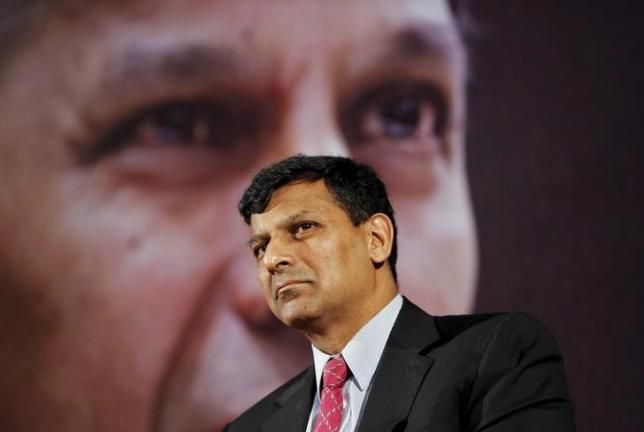'We have 100,000 students going abroad every year.'
'So, we have room for at least 100 universities of very high quality to service those 100,000 students.'

IMAGE: 'Certainly in this country we can't subsidise education too much,' says Dr Raghuram Rajan. Photograph: Reuters
Dr Raghuram Rajan -- the economist and former Reserve Bank of India governor -- is part of an elite group that launched a unique undergraduate liberal arts private university.
In an exclusive chat with Anup Roy and Nikhat Hetavkar, Dr Rajan says there is a need to give quality education in India to students who fly overseas every year.
You are on the advisory council of KREA University. Will you be teaching also?
Just like I was previously associated with ISB (the Indian School of Business), I go there once in a while, I taught a course there, and I visit classes. My wife teaches there now. So, there will be an engagement, of course.
I am working with the academic council and the board. It is a bunch of people who have come together. I don't want to occupy any bigger position than I am holding now. I am merely helping, along with a large group of very dedicated people.
You are a product of an Indian education system. What do you think the system is lacking now?
We have fantastic institutions. But remember, we have so many young children coming in now, looking for admission into colleges. And our system is inadequate in terms of numbers to serve all of them with high-quality education.
And, of course, every time there is an opportunity to rethink what the old institutions are doing.
Can we do things differently?
Is there room for something new even when the old continues?
We need more institutions to meet the demand.
We have 100,000 students going abroad every year. So, we have room for at least 100 universities of very high quality to service those 100,000 students.
We have the freedom to create a new model and that's what is exciting.
Why is Dr Rajan, who is very much a public figure, not engaged in the public education system, and why do you have to branch out to the private sphere?
It's not much of private. The intention is to make it available to those who qualify. There will be scholarships for those who can't afford to pay.
There is far more flexibility in creating a new institution when you come together without the existing structures. That's why it is important to try and experiment outside the formal public structure.
But even then the fee is Rs 700,000-Rs 800,000 per annum for a four-year course.
This is what it costs. When we talk about IITs, you will have to look at what the true cost per student the country is paying. Now that is buried somewhere in the government budget. And students are paying only a fraction of it.
I paid a fraction of the cost it took the country to educate me. With private institutions, the cost is all out there.
If you want quality, you want to pay your faculty a reasonable amount, you want buildings as places in which you feel like learning, you have to spend money.
What we are trying to say is that we will try and ensure that anybody who is admitted can afford to pay.
Certainly in this country we can't subsidise education too much.
Education inflation was always a worrying factor for you. Now that if you have such a high fee structure for a premier institute, there is a good chance that other private institutions will hike their fees.
I don't think the intention is to make enormous amounts of money here. This is a not-for-profit institute.
What we will try to do is to keep it as affordable as possible. But you have to ensure a certain quality of education.
Now if this institution turns out to be overly expensive, alternatives will come up. Competition will always work, even in the education market.
We have lots of entities that can provide quantity, but we need to ensure that we have at least some that can provide quality. As I said, there are institutions that are very respectable out there.
Will it have courses like monetary economics etc, where you could be engaged?
I think there would be a course in economics. Any course in economics will certainly teach undergrads micro economics, macro-economics and so on.
The extent to which it specialises into master's level courses that will have to stage two or three down the line.
Initially, what we want to give is strong undergrad curriculum for the students who are coming in.












 © 2025
© 2025